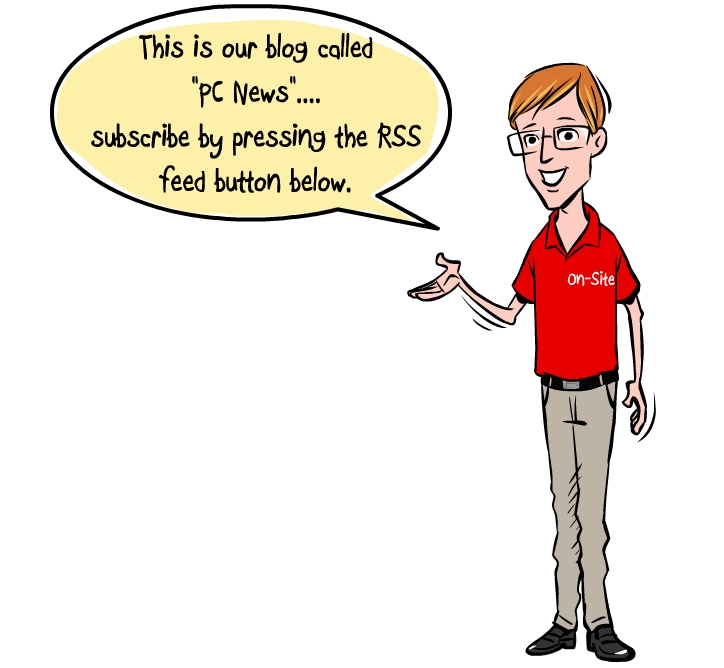 In the ever-evolving landscape of personal computing, the debate between PC and Mac users remains as fervent as ever. Both platforms have their ardent supporters, and each offers a unique set of advantages. Whether you’re a tech enthusiast, a creative professional, or an average user, choosing between a PC and a Mac can significantly impact your computing experience. This article dives into the core differences, strengths, and weaknesses of each, helping you make an informed decision.
In the ever-evolving landscape of personal computing, the debate between PC and Mac users remains as fervent as ever. Both platforms have their ardent supporters, and each offers a unique set of advantages. Whether you’re a tech enthusiast, a creative professional, or an average user, choosing between a PC and a Mac can significantly impact your computing experience. This article dives into the core differences, strengths, and weaknesses of each, helping you make an informed decision.
Hardware and Customization
PC:
PCs are renowned for their hardware versatility and customization options. The market offers a plethora of choices from various manufacturers, such as Dell, HP, and Lenovo, catering to a wide range of budgets and performance needs. One of the standout features of PCs is the ability to upgrade components like RAM, storage, and graphics cards easily. This modularity ensures that users can keep their systems up-to-date without investing in a brand-new machine.
Mac:
Apple’s Mac lineup, including the MacBook, iMac, and Mac Mini, is celebrated for its sleek design and build quality. Macs are known for their seamless integration of hardware and software, which often results in a more stable and efficient user experience. However, the downside is the limited customization. Upgrading a Mac’s internal components is typically more challenging and, in many cases, impossible for the average user.
Operating System
PC:
Most PCs run on Microsoft Windows, the world’s most popular operating system. Windows offers a familiar interface and broad software compatibility, making it a versatile choice for various applications, from gaming to business. Windows 10 and the newer Windows 11 have continued to enhance user experience with features like improved security, virtual desktops, and seamless updates.
Mac:
Macs operate on macOS, known for its clean interface, robust security, and seamless integration with other Apple products like the iPhone and iPad. macOS is particularly favored by creative professionals for its powerful native applications like Final Cut Pro and Logic Pro. Additionally, macOS is built on a Unix foundation, providing a stable and secure environment ideal for developers and power users.
Software and Ecosystem
PC:
The PC ecosystem is vast, with a wide array of software available for virtually every purpose. PCs are particularly dominant in the gaming industry, boasting extensive game libraries and superior compatibility with the latest titles. Additionally, PCs support a broader range of professional software, particularly in fields like engineering and data analysis.
Mac:
Macs shine in the creative sector, with a suite of high-quality applications for video editing, graphic design, and music production. The Apple ecosystem offers unparalleled synergy between devices, making it easy to transition between tasks on an iPhone, iPad, and Mac. However, Macs often face limitations in software availability, particularly in niche professional areas and gaming.
Security
PC:
Windows PCs have historically been more susceptible to malware and viruses, primarily due to their widespread use. However, Microsoft has made significant strides in enhancing security features with built-in antivirus programs and advanced threat protection in Windows 10 and 11. Users can further bolster their security with third-party antivirus solutions.
Mac:
macOS is renowned for its robust security features. Apple’s controlled ecosystem and Unix-based architecture provide a strong defense against malware. Additionally, Macs come with built-in security tools like XProtect and Gatekeeper, which help prevent unauthorized software from running. While no system is entirely immune, Macs generally experience fewer security threats.
Price
PC:
One of the most significant advantages of PCs is their price range. PCs cater to all budgets, from affordable options suitable for basic tasks to high-end machines designed for gaming and professional workstations. This flexibility makes PCs accessible to a broader audience.
Mac:
Macs are generally positioned as premium products, with a higher entry price point. While the initial investment is substantial, many users justify the cost with the long lifespan, high resale value, and overall performance of Apple devices. Additionally, Apple’s education and financing programs can make Macs more accessible to students and professionals.
Conclusion
Choosing between a PC and a Mac ultimately depends on your specific needs, preferences, and budget. If you value customization, a vast software library, and affordability, a PC might be the better choice. On the other hand, if you prioritize design, security, and a seamless ecosystem, a Mac could be the ideal fit. Both platforms have their unique strengths, and understanding these can help you make an informed decision that aligns with your personal or professional requirements.
No matter your choice, both PCs and Macs offer powerful, reliable options for users in the modern computing world.
Monthly Archives: May 2021
The Antivirus Software Scandal
There was a time that most computer users were terrified of malware. The only logical response was to install antivirus software on your computer as soon as possible. And there was a good reason; it’s hard to find someone that didn’t suffer from a malware attack at some point. But do you really need antivirus software?
Read on and decide for yourself.
- Windows includes free, high quality antivirus software called Windows Defender. You’ve already paid for Windows, whether you realize it or not. If you’re using Windows 10, there isn’t a good reason to spend your money on additional antivirus protection.
- Historically, Windows antivirus programs were underwhelming, but testing shows the newest version of Windows deals with viruses and other malware just as well as the third-party vendors software.
- Antivirus software slows your computer. Antivirus software updates itself frequently. This can bring your computer speed down to a crawl. An antivirus program is always running and hogs system resources.
- By default, antivirus programs are always out of date. Antivirus software is developed to deal with existing viruses. When a new virus is released, you’re not protected until the company that developed your antivirus software puts in the time, energy, and money to address it. During that time, your antivirus program is worthless.
- The companies that make antivirus software aren’t always trustworthy. There have been several scandals involving antivirus software developers. One popular antivirus company is in hot water for selling user web browsing information to third parties. Another manufacturer of antivirus software has been accused of spying for the Russian government.
- Antivirus programs have a lot of control over your computer system. They see everything. Do you have complete trust that your information is being kept safe?Everyone must take responsibility for their computer security, but many experts believe that a third-party antivirus program is unnecessary today. It destroys computer performance, and it’s an unnecessary expense.
Do you need antivirus software? No. Be responsible in your internet and email use and continue to improve your digital navigation skills. That means be careful with email attachments, and be careful about downloading any executable files. You don’t have to spend extra money to keep your computer safe – you need to become a better computer user.


